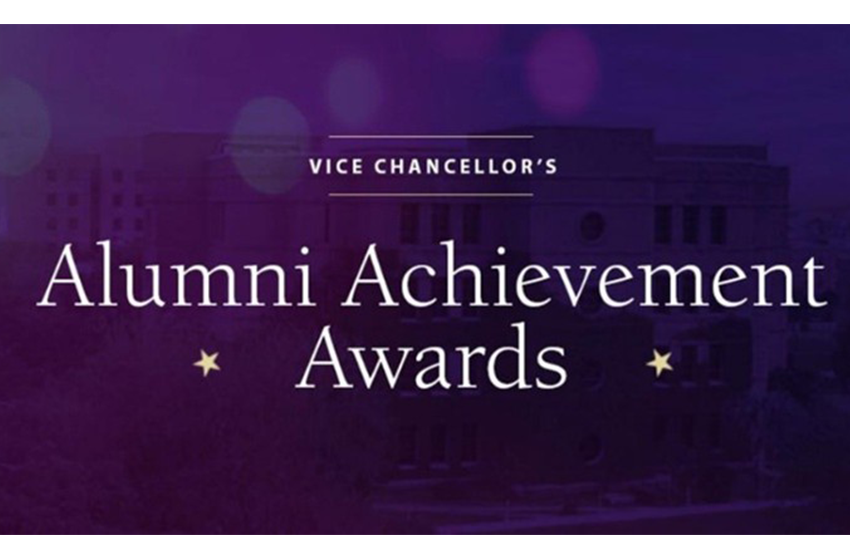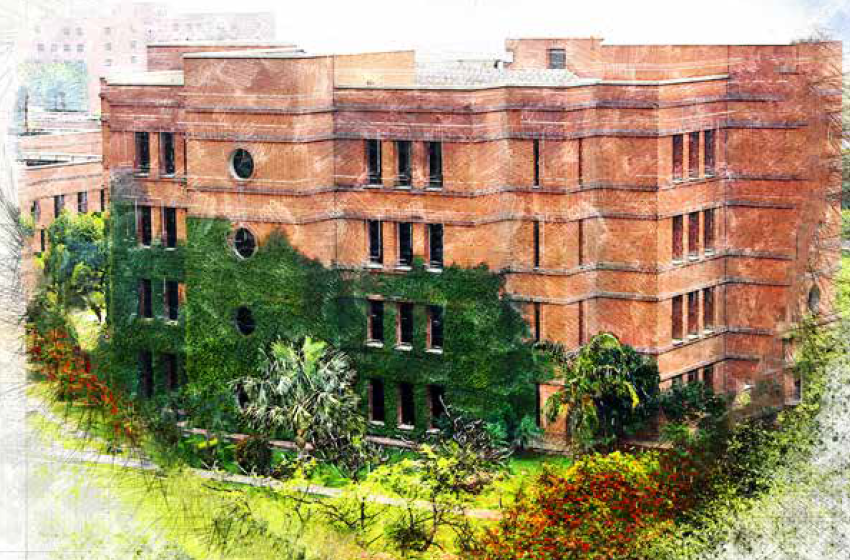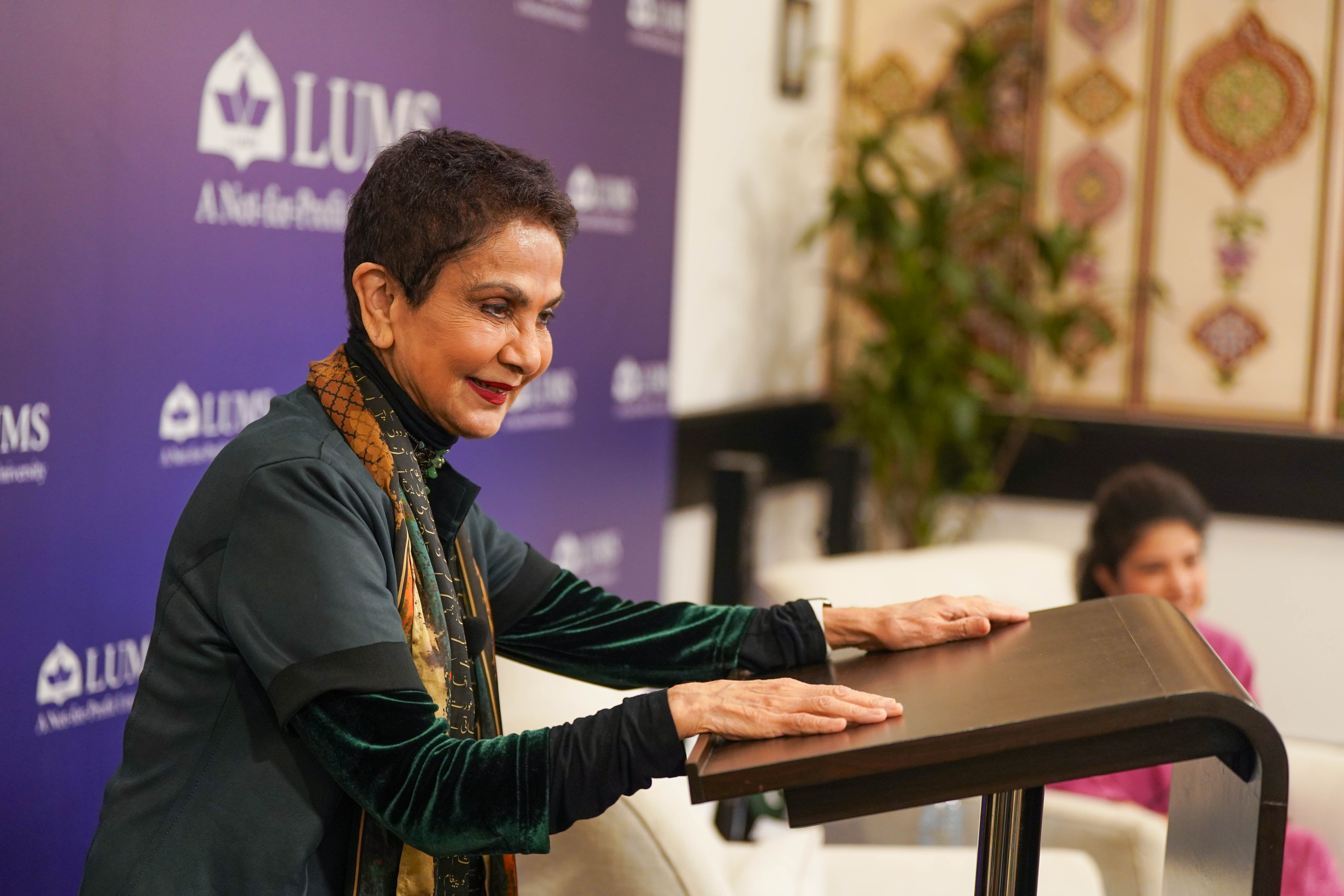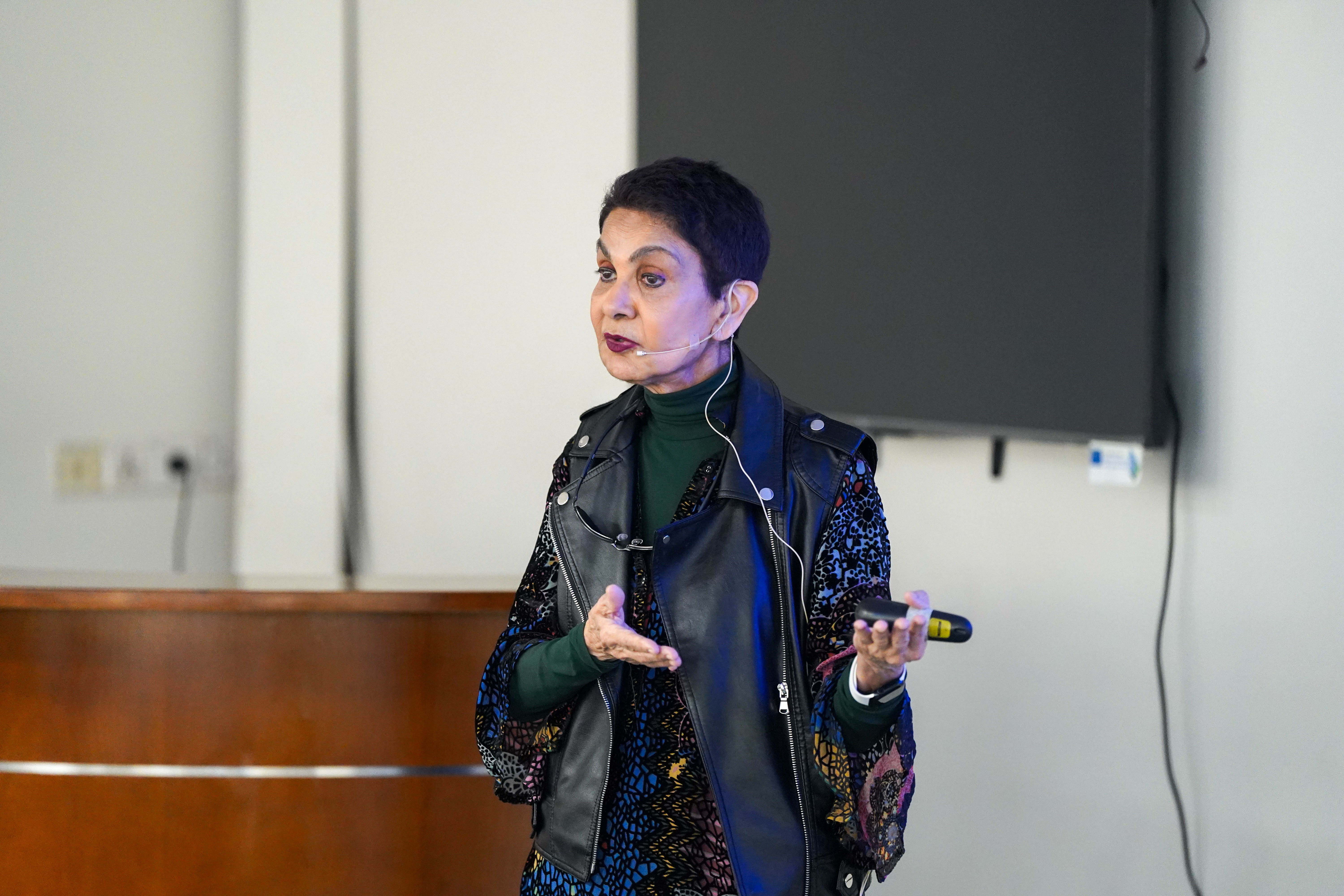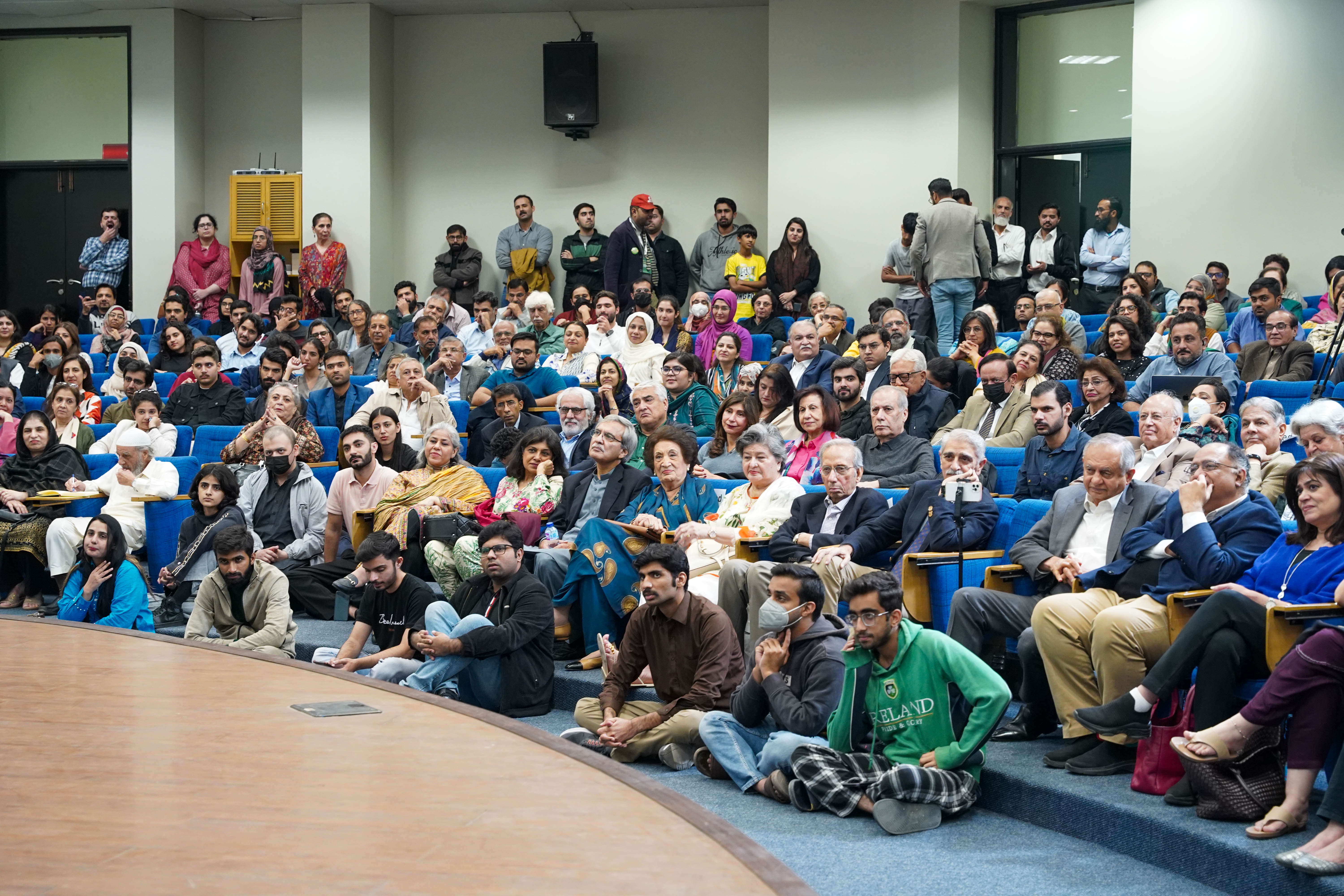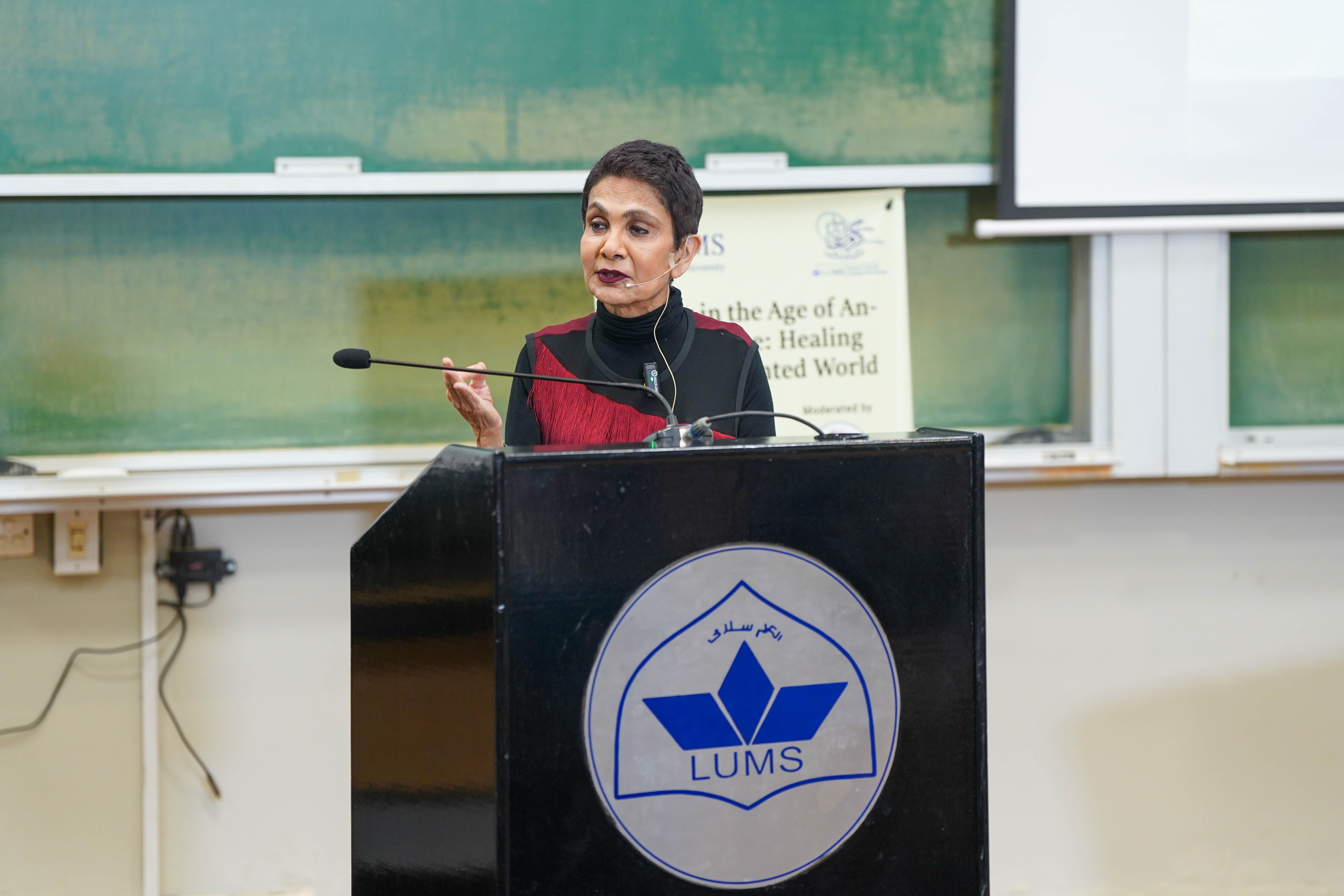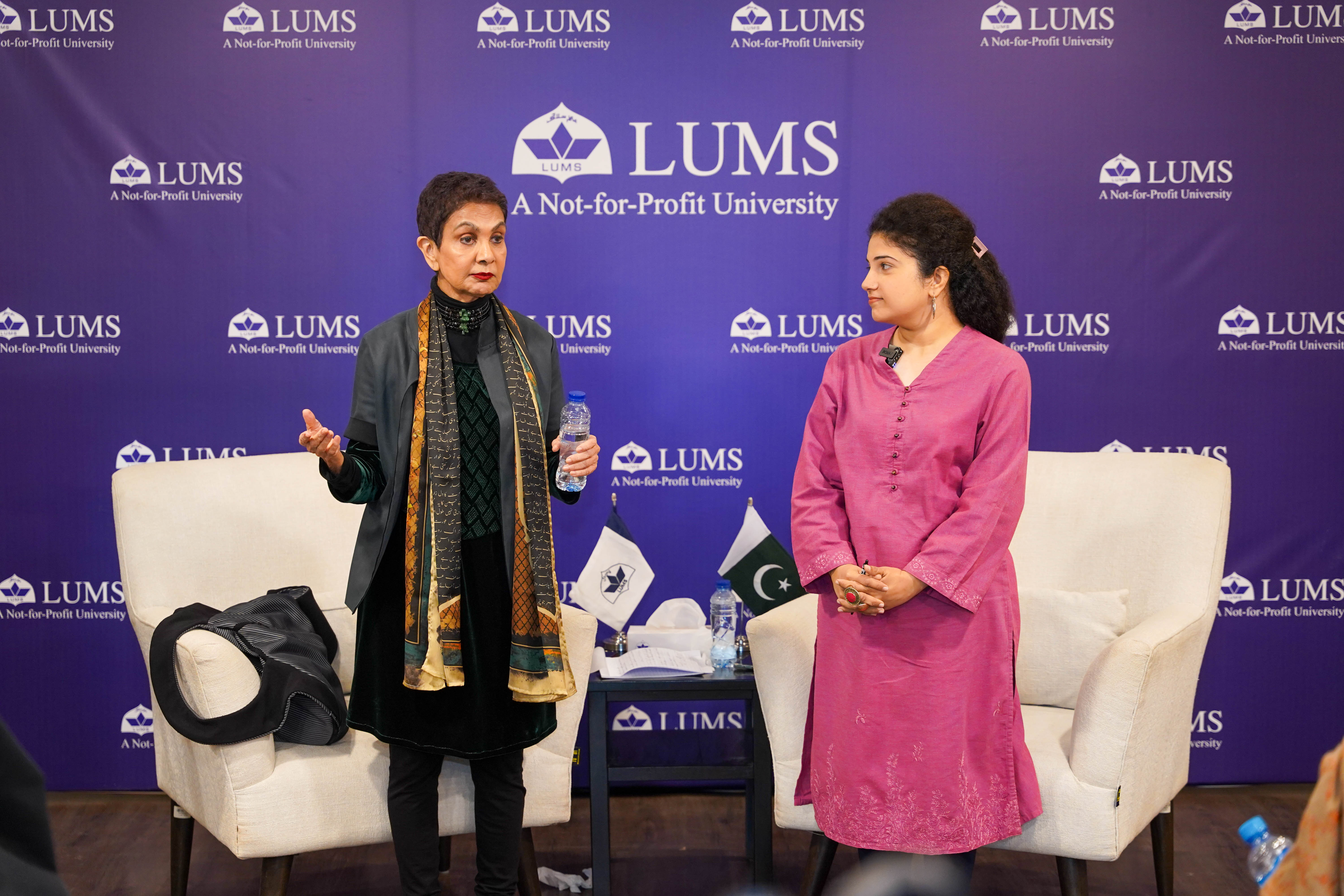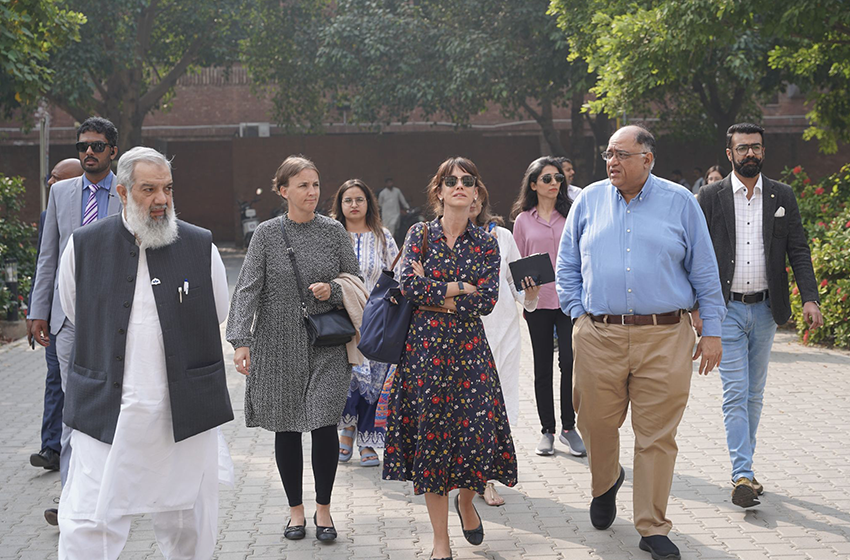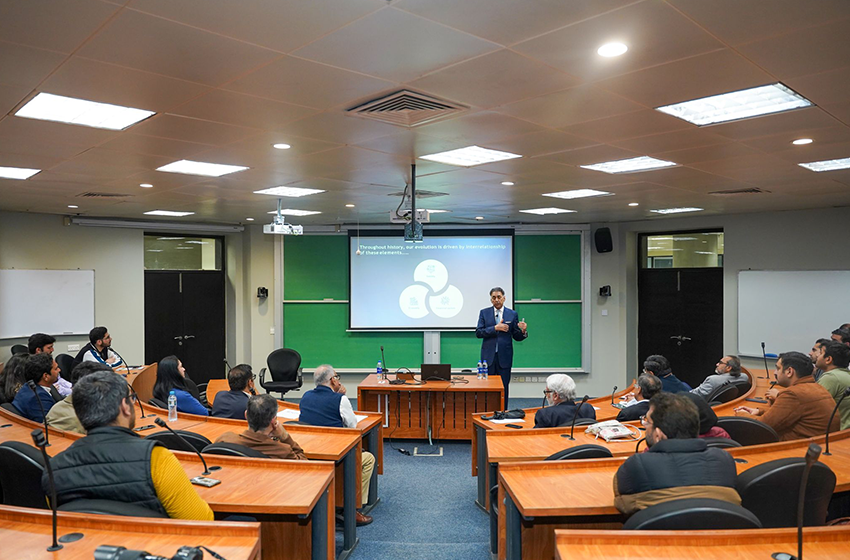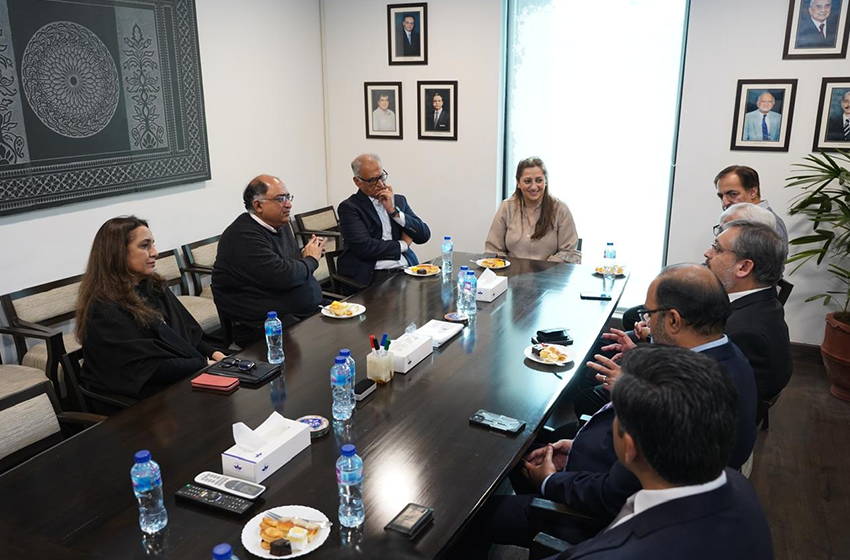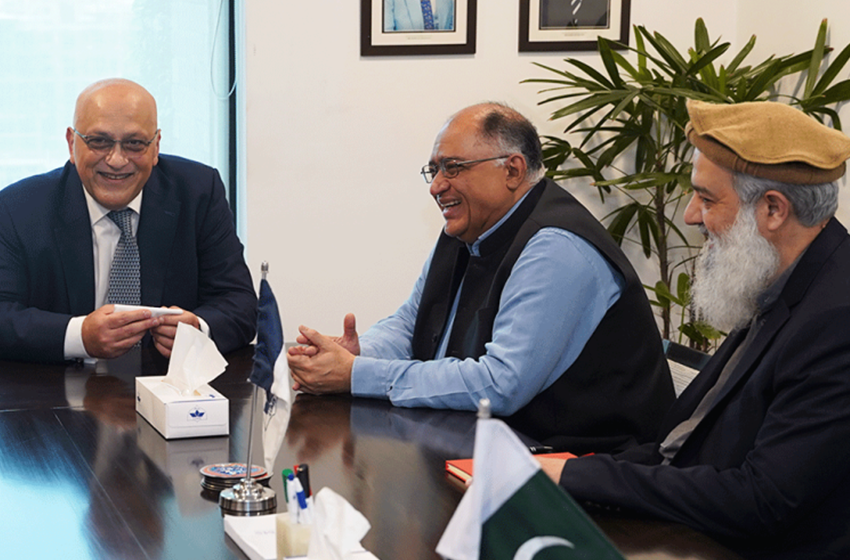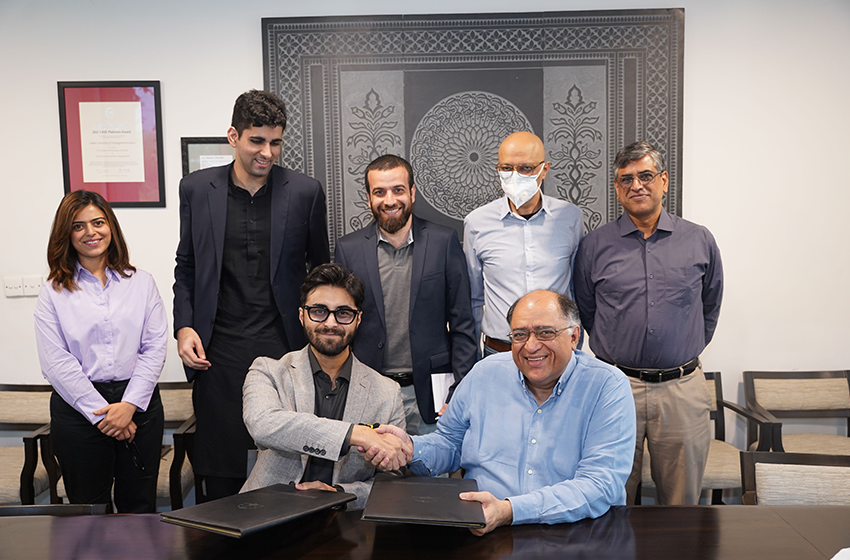The Office of the Vice Chancellor at LUMS plays a pivotal role in guiding strategic leadership, academic planning, and stakeholder engagement across the university. Over the past year, the Office has facilitated high-level interactions with global academic leaders, industry executives, donors, and policymakers, while also overseeing internal operations and institutional strategy.
University Governance and Leadership
The Vice Chancellor’s Office anchors the university’s governance framework, ensuring effective leadership through deliberative and inclusive decision-making.
Board of Trustees
The Board of Trustees (BoT) convened in December 2024 at LUMS to review the university’s progress and provide strategic guidance on key areas of institutional development. The meeting focused on advancing LUMS’ role as a hub for technology-led innovation and social impact in Pakistan.
The Board reviewed new and ongoing collaborations with industry leaders, global academic partners, and philanthropic networks, with a focus on leveraging these alliances to drive interdisciplinary innovation and expand opportunities for students and faculty. It also approved the introduction of new academic programmes aligned with emerging global trends and national priorities. Faculty members shared updates on cutting-edge research in artificial intelligence across the university, highlighting applications in public policy, education, healthcare, and financial systems. Particular attention was given to the role of AI in promoting environmental sustainability, with faculty presenting novel approaches to climate data analysis, energy efficiency, and sustainable urban planning.
These reaffirmed the Board’s strategic role in shaping LUMS’ vision to be a national leader in responsible innovation and public-purpose education.
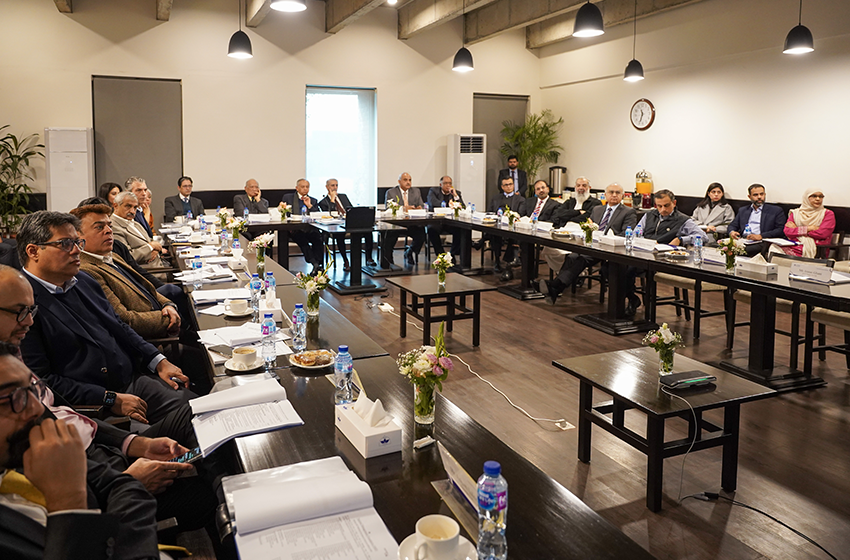
University Council
The University Council, chaired by the Vice Chancellor and comprising faculty, student leaders, deans, and senior administrators, functions as a key platform for collaborative governance at LUMS. It brings together diverse stakeholders to deliberate and advise on matters related to academic affairs, administration, and student life.
The Council actively engaged in discussions on the Student Code of Conduct, including the addition of a Dignity Clause, and offered critical input on policy updates to support student well-being and academic integrity. It also advised on gender equity, student support frameworks, and career development pathways, while contributing to discussions around cost-efficiency, sustainability, and resource management.
The Management Committee
The Management Committee (MC), a key subset of the Board of Trustees, continued its vital role in guiding LUMS’ strategic and operational priorities throughout 2024. The Committee provided oversight of capital development, academic leadership appointments, and promotions. It also focused on implementing the university’s strategic plan and ensuring alignment across major institutional initiatives.
In addition, the MC reviewed and monitored annual budgets, investment portfolios, and the university’s endowment performance, alongside HR policies designed to support a dynamic and inclusive workplace.
The MC also continued to convene School Advisory Boards, gathering valuable external perspectives on academic programmes, market trends, and alumni engagement strategies.
Vice Chancellor’s Council
Comprising the Vice Chancellor, Provost, Deans of the five schools, and the Dean of Student Affairs, the Vice Chancellor’s Council plays a pivotal role in shaping institutional priorities, advancing academic excellence, and promoting a more integrated academic environment across the university.
Among its key initiatives was the development of the undergraduate core curriculum, with a renewed focus on interdisciplinary learning, ethical reasoning, and civic engagement. The Council also addressed pressing issues related to student well-being, including the expansion of mental health services and the enhancement of campus healthcare infrastructure. Furthermore, the Council played an important role in promoting inter-school collaboration through joint research initiatives, co-teaching opportunities, and interdisciplinary project development.
Vice Chancellor’s Administrative Council
The Vice Chancellor’s Administrative Council provides advisory support for university operations and facilitates effective coordination across administrative units. It comprises senior directors from key functional departments, including General Administration Services, Information Systems and Technology, the Office of Advancement, Finance, Internal Audit, and Human Resources. Recommendations by the Council help inform operational planning, resource optimisation, and policy implementation, contributing directly to institutional effectiveness and resilience.
Dean Appointments and Academic Leadership
As part of its academic leadership mandate, the Vice Chancellor’s Office led Dean Search Committees to identify and appoint exceptional academic leaders. A key milestone during the year was the appointment of Dr. Muhammad Adeel Zaffar as Dean of the Suleman Dawood School of Business (SDSB), marking a new chapter in the school’s academic and institutional development.
LUMS as a Convening Space
LUMS continued to establish itself as a national platform for dialogue, leadership, and cultural exchange by hosting a wide range of distinguished guests and landmark events on campus. Through high-level visits and strategic convenings, the university brought together leaders from academia, policy, finance, diplomacy, and the arts, reinforcing its role as a space where diverse perspectives converge to address critical challenges.
Dr. Azra Raza, renowned oncologist, author of The First Cell
LUMS recently had the privilege of hosting Dr. Azra Raza, a globally renowned oncologist, author of The First Cell, and advocate for patient-centred cancer care.
In a series of thought-provoking talks, Dr. Raza captivated audiences with her vision for revolutionising cancer detection, the profound wisdom of poetry, and the urgent need for collaboration across disciplines.
Strategic Engagements
Beyond the campus, the Vice Chancellor represented LUMS at a series of high-impact forums and conferences, reinforcing the university’s national presence and expanding its influence across sectors. These engagements highlighted LUMS’ leadership in shaping discourse on sustainability, technology, education reform, and economic development, while strengthening partnerships with key institutions and stakeholders.
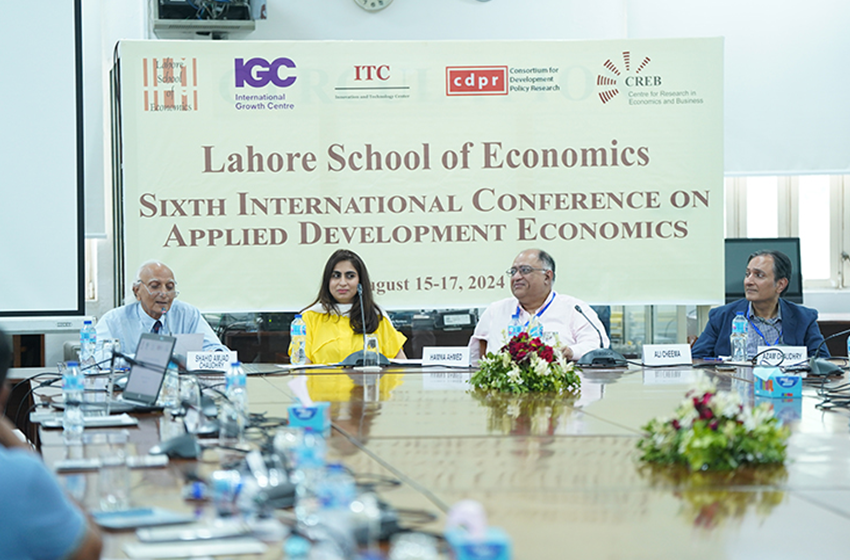
A central highlight of the year was LUMS’ participation in the Applied Development Economics (ADE) Conference, hosted by the Lahore School of Economics, where the Vice Chancellor joined leading economists and policymakers to discuss inclusive growth, labour markets, and evidence-based public policy. LUMS was also represented at the IBA Annual Conference, where the university’s role in democratic resilience and innovation in higher education were prominently featured.
The Vice Chancellor participated in the Breathe Pakistan campaign, underscoring the university’s engagement with pressing civic challenges. As part of the session, ‘Commemorating the 100th anniversary of Pakistan in 2047: A Vision for Climate Resilience & Climate Justice’, with Senator Sherry Rehman, he challenged the prevailing narrative that limits climate action to a justice framework and emphasised that Pakistan must confront its own environmental crisis, beyond its minimal contribution to global emissions.
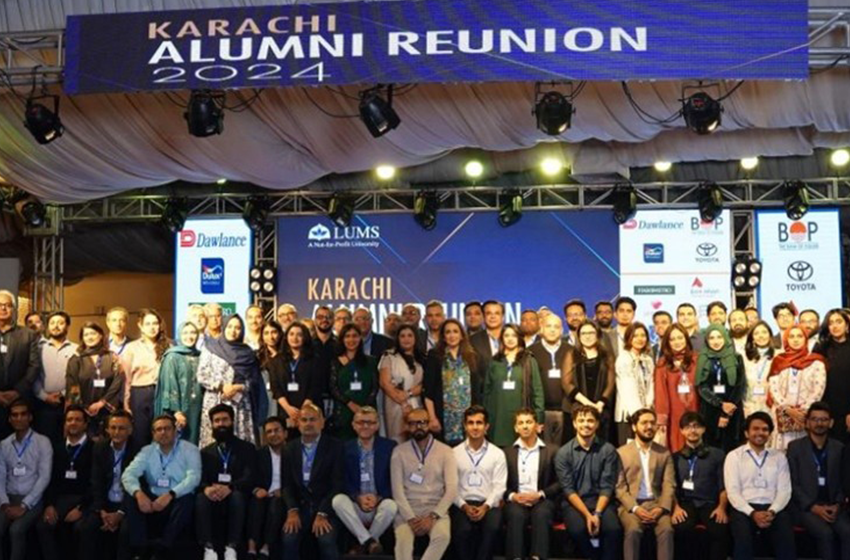
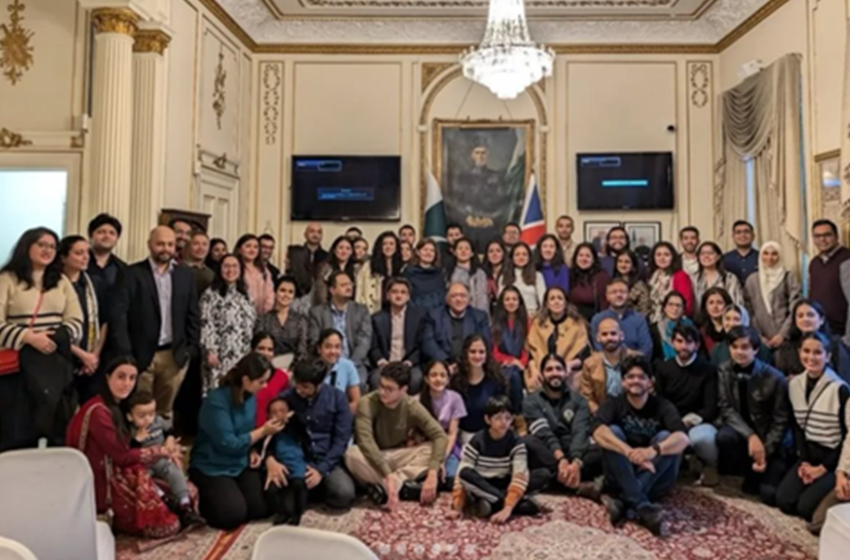
Throughout the year, the Vice Chancellor remained deeply engaged with the LUMS alumni community—attending class reunions, alumni dinners, and milestone gatherings both in Pakistan and abroad. He joined the UK Alumni Reunion and the Karachi Alumni Reunion , reconnecting with graduates across generations and sharing updates on the university’s evolving mission and future direction. These events provided a meaningful space to celebrate the enduring impact of the LUMS experience and to reflect on the collective strength of its alumni network.
Within the university, the Vice Chancellor also hosted a special gathering to honour recipients of the Vice Chancellor’s Alumni Achievement Award (AAA).
